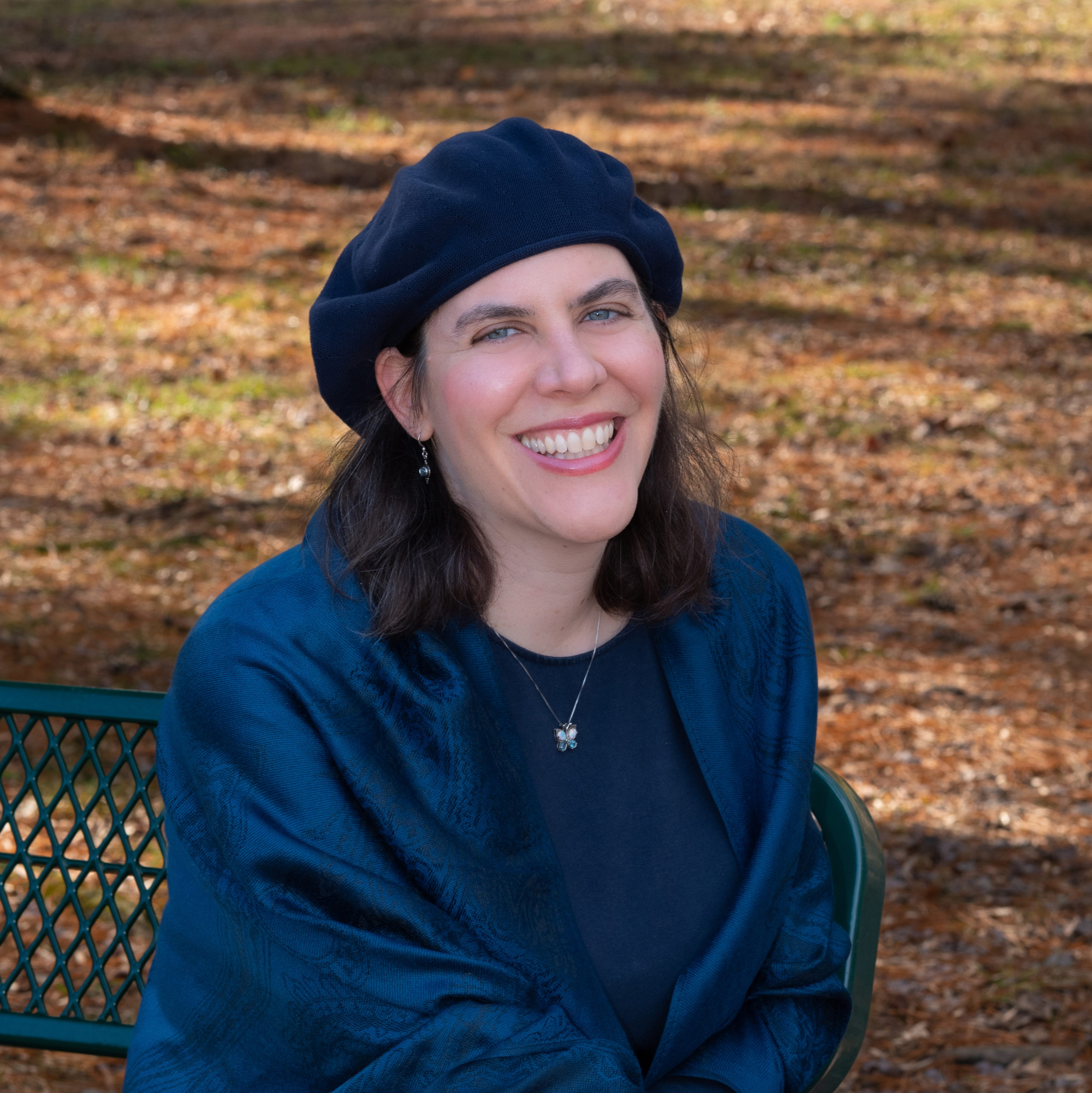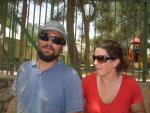Tu B’Shvat / Tu B’Shevat / New Year for Trees Subscribe
A selection of initiatives, blogs, resources and communities on Jewcology which focus on Tu b’Shevat.
Blogs
Lessons From Trees: A Tu Bishvat Message
Some of my most important lessons in life I learned from Jewish verses about trees. From the following I learned that I should be an environmental activist, working to help preserve the world: In the hour when the Holy one, blessed be He, created the first person, He showed him the trees in the Garden of Eden, and said to him: "See My works, how fine they are; Now all that I have created, I created for your benefit. Think upon this and do not corrupt and destroy My world, For if you destroy it, there is no one to restore it after you. (Ecclesiastes Rabbah 7:28) F...
Preserving the Sacred Environment: A Religious Imperative – A Tu Bishvat Message
Many contemporary Jews look upon Tu Bishvat as a Jewish Earth Day, a day for contemplating our ecological heritage - and the multitude of threats it currently faces. An ancient midrash has become all too relevant today: "In the hour when the Holy one, blessed be He, created the first person, He showed him the trees in the Garden of Eden, and said to him: "See My works, how fine they are; Now all that I have created, I created for your benefit. Think upon this and do not corrupt and destroy My world, For if you destroy it, there is no one to restore it after you." (Eccle...
Why Is This Night Different?: Thoughts on Tu B’Shvat
One of the highlights of the Passover seder is the recitation of the four questions which consider how the night of Passover differs from all the other nights of the year. Similar questions are also appropriate for Tu B’Shvat, which starts on Friday evening, February 10, in 2017, because of the many ways that this holiday differs from Passover and all other nights of the year. While four cups of red wine (or grape juice) are drunk at the Passover seder, the four cups drunk at the Tu B’shvat seder vary in color from white to pink to ruby to red. While ...
The Tu b’Shevat After
When you are a Jewish environmentalist taking a break from the Jewish environmental world, you sometimes feel like you're in your own personal exile. It's self-imposed, of course. I suspect that I'd be welcomed if I tried to engage myself. But I also know that I need this time. (And when I forget, I keep getting reminders.) So I keep reminding myself - and being reminded - to step back. Step away. Wait until the time is right. And then the month of Shevat came. And while I've enjoyed not running around to lead seders, not rushing to prepare and post ...
Earth Etude for Elul 23- Teshuva and Beauty
by Lois Rosenthal The weekly Haftorah readings follow the story of the Israelites after they crossed the Jordan into the Promised Land. The writing styles vary greatly, from poetry to historical prose. Of particular note are writings from the time of the divided kingdom. Conquests of the Northern Kingdom of Israel and the Southern Kingdom of Judah were seen by the prophets as divine punishment for failure to follow the Torah. The writings from this time are full of harsh rebukes and biting metaphors. This is the type of reading found in the weeks ...
Uplifting People and Planet
Exciting news! Just in time for Tu b’Shevat, Canfei Nesharim and Jewcology are proud to announce the launch of a new ebook exploring traditional Jewish teachings on the environment, Uplifting People and Planet: Eighteen Essential Jewish Lessons on the Environment, edited by Rabbi Yonatan Neril and Evonne Marzouk. This ebook is the most comprehensive study in English of how Jewish traditional sources teach us to protect our natural resources and preserve the environment. From food to trees, energy to water, wealth to biodiversity, the book studies eighteen ...
A Tu B’Shvat Seder to Heal the Wounded Earth
The New Year – for Rebirthing Trees: [This version of the Haggadah for Tu B’Shvat has been greatly adapted by Rabbi Arthur Waskow of The Shalom Center from a Haggadah shaped by Ellen Bernstein, as published in Trees, Earth, and Torah: A Tu B’Shvat Anthology (Jewish Publ. Soc., 1999, ed. by Elon, Hyman, & Waskow). Bernstein wrote introductory remarks to sections of that Haggadah, many of which have been included or adapted for this one. They are indicated in the text by the initials “EB.” * The desire for such a Haggadah grew from ...
Lessons From Trees: a Tu Bishvat Message
Some of my most important lessons in life I learned from Jewish verses about trees. From the following I learned that I should be an environmental activist, working to help preserve the world: In the hour when the Holy one, blessed be He, created the first person, He showed him the trees in the Garden of Eden, and said to him: "See My works, how fine they are; Now all that I have created, I created for your benefit. Think upon this and do not corrupt and destroy My world, For if you destroy it, there is no one to restore it after you." (Ecclesiastes Rabbah 7:28) From ...
For Tu Bishvat: Quotations from Jewish Sources about Trees
Since Tu Bishvat is considered the "birthday for trees," a time when trees are to be judged regarding their fate for the coming year, I hope the following Jewish quotations about trees and fruits will be helpful for celebrations of this increasingly popular holiday. 1. And God said: "Behold, I have given you every herb yielding seed which is upon the face of all the earth, and every tree that has seed-yielding fruit -- to you it shall be for food." (Genesis 1:29) 2. In the hour when the Holy one, blessed be He, created the first person, He showed him the trees in the ...
WHY IS THIS NIGHT DIFFERENT? THOUGHTS ON TU BISHVAT
One of the highlights of the Passover Seder is the recitation of the four questions that consider how the night of Passover differs from all the other nights of the year. Many questions are also appropriate for Tu Bishvat, which starts on Wednesday evening, January 15 in 2014, because of the many ways that this holiday differs from Passover and all other days of the year. While four cups of red wine (or grape juice) are drunk at the Passover Seder, the four cups drunk at the Tu Bishvat Seder vary in color from white to pink to ruby to red. While Passover is a holiday ...
The Urban Adamah Fellowship Now Accepting 2014 Applications
Connect to Something Bigger: Earth, Community, Social Justice, Jewish Spirituality The Urban Adamah Fellowship, based in Berkeley, CA, is a three-month residential training program for young adults (ages 21–31) that combines urban organic farming, social justice training and progressive Jewish learning and living within the setting of an intentional community. Through the operation of Urban Adamah’s one-acre organic farm and internships with social justice organizations, fellows gain significant skills, training and experience in all aspects of ...
Restoring and Transforming the Ancient New Year for Animals
Another Jewish holiday? Don't we have enough already? Not according to Jewish Vegetarians of North America (JVNA), of which I am president emeritus. We are working with a coalition of Jewish groups and individuals to restore and transform the ancient and largely forgotten Jewish holiday of Rosh Hashana L'Ma'aser BeHeima (New Year's Day for Tithing Animals for sacrifices when the Jerusalem Temple stood) into a day devoted to increasing awareness of Judaism's beautiful teachings on compassion to animals. These teachings include: (1) “God's compassion is over all His ...
Planting Abraham’s Urban Orchard
Last week we celebrated Tu B’Shvat as all of this blog’s readers know. This celebration is for the New Year of the Trees and the start of the first signs of spring. This occasion marks another time of year that is in syncopation with the agricultural rhythms of the land. During this time, the sap in the tree starts to flow upwards from the soil and roots into the trunk, branches, and leaves finally bursting forth the newest buds of spring. The Tu B’Shvat seder reminds of the natural rhythm of the seasons represented by the four cups of wine all with ...
D’var Torah: Tu B’Shevat 5773 – Assiyah
The following is a brief D'var Torah I gave at Anshei S'fard Kehillat Torah's Tu B'Shevat Seder in Milwaukee.
A Great Children’s Activity for Tu b’Shevat
Although Tu b’Shevat is already over for 2013, here is a great activity we thought up on the farm that you can use for 2014! This activity is adapted from The Lookstein Center’s “Tu B’Shvat Seder for Young Children.” Make a birthday cake for trees! The activity involves making a large batch of air-dry salt clay in several different colors: brown, green, red, etc. On a very large surface, make a tree shape out of the brown dough. Then, each participant can come and help to make the leaves and fruits to add to the tree, to show how ...
What’s New In The World of Emergency Food? 3 Answers in 3 Weeks
Blog post by Karin Fleisch, Board Member for Uri l’Tzedek, master’s student at NYU’s Wagner School and speaker on behalf of American Jewish World Service. --------------------------------------------------------- After five years at the Food Bank for NYC, during which time I monitored over 400 food pantries and 200 soup kitchens, I thought I knew everything there was to know about local responses to hunger. Happily, It turns out I was wrong. So what's new in the world of emergency food? Over the next three weeks I will profile three ...
Celebrating Tu Bishvat as if Environmental Sustainability Matters
Celebrating Tu Bishvat as if Environmental Sustainability Matters Richard H. Schwartz Since Tu Bishvat, the “New Year for Trees,” has increasingly become a “Jewish Earth Day,” why not use Tu Bishvat Seders as, among other things, a time to consider how we can effectively respond to current environmental crises that threaten all life on the planet? The world is rapidly heading toward a climate catastrophe, severe food, water, and energy scarcities, and other environmental disasters. This is a strong consensus of almost all climate scientists and ...
Tu B’Shvat and Vegetarianism
Tu B'Shvat and Vegetarianism Richard H. Schwartz Tu B'Shvat is arguably the most vegetarian of Jewish holidays, because of its many connections to vegetarian themes and concepts: 1. The Tu B'Shvat Seder in which fruits and nuts are eaten, along with the singing of songs and the recitation of biblical verses related to trees and fruits, is the only sacred meal where only vegetarian, actually vegan, foods, are eaten. This is consistent with the diet in the Garden of Eden, as indicated by God's first, completely vegetarian, dietary law: “And God said: ‘Behold, I have ...
Tu Bishvat: Seasonal Fruit and the New Year for Trees
The month of Sh’vat (January 11-February 10, 2013) includes the holiday of Tu Bishvat (January 25-26, 2013), which is a particularly significant day for contemporary Jews who are passionate about nature, ecology and farming. Today, this relatively minor holiday has become a key celebration of our sacred connection with fruit trees, food and the natural world. However, amidst our delight in this bounty, we would do well to reflect critically on what fruits we enjoy, when we consume them and where they come from. Tu Bishvat is not a biblical holiday. In Mishnah ...
Honoring the Environment for Tu B’Shevat
January in the secular calendar brings the Jewish holiday of Tu B’Shevat. Tu B’Shevat celebrates the New Year of the Trees and was thought to have originated as an agricultural festival marking the emergence of spring. Today, Jews celebrate Tu B’Shevat by expressing thankfulness for trees, harvests and the natural world. What better time to think about individual steps you can take even in the dead of winter to help the environment. Below are a few simple things you can do to help protect forests, along with ways to be more mindful of ...







